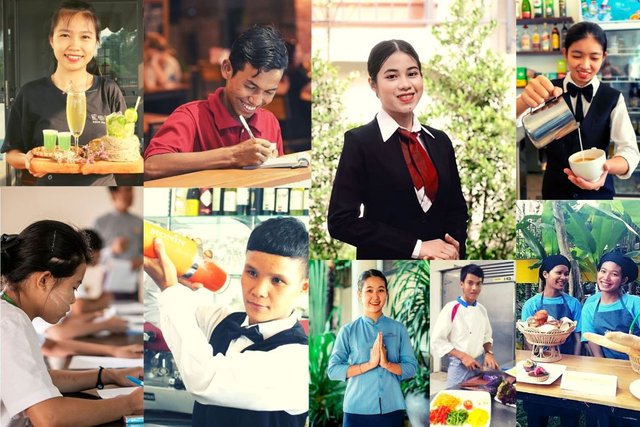55 ways tourism can be friendlier to the environment: An ‘Eco-Guide’

“Good Tourism” Insight Partner ASSET‑H&C has published the free Eco-Guide for Hospitality Businesses and Schools, which lays out 55 tips for reducing tourism’s negative effects on the environment. Sophie Hartman, Nguyễn Thị Thu Thảo, and Võ Thị Quế Chi describe the why, the how, and a few of the what in this “GT” Insight.
In view of COVID-19 and its ongoing impacts, increasing sustainability has become more relevant and urgent than ever before for the tourism industry.
By training the responsible workers of tomorrow and implementing green practices in their own operations, educational institutions can accelerate the sector’s transition to a more environmentally-responsible business model.
Before COVID-19 there were obvious signs throughout Southeast Asia that tourism had a large and often negative affect on the environment:
For example, in Thailand, pollution from litter, boats, and sunscreen is estimated to have destroyed more than 80% of the coral surrounding the world-famous Maya Bay in Krabi. The bay used to receive up to 200 boats and 5,000 tourists a day. However, since 2018, the site has been closed to allow it to recover from the damage caused by tourists. It may reopen on January 1, 2022, with a new pier and regulations.
In Cambodia, the iconic Angkor Wat temple is at risk of collapse due to environmental threats. Increasing water demand from visitors and residents of nearby Siem Reap have resulted in shortages, forcing the authorities to tap into groundwater. As the water table of the area lowers, the ground becomes less stable.
The COVID-19 crisis has been considered by many as a wake-up call for the industry. It has made tourism’s influence on the economy, society, and environment even more obvious. It has also highlighted the fragility of the natural environment and the need for conservation.
The time for deep social and environmental change has come. The downtime in global tourism activities has offered a golden opportunity for such change to happen.
Intensifying demands, evolving practices
The Association of Southeast Asian Social Enterprises for Training in Hospitality & Catering (ASSET‑H&C) is a regional network of vocational schools that provide a path to employment in the tourism and hospitality sector for vulnerable youth. Besides offering disadvantaged populations a means of social mobility, its members also strive to shape a new generation of responsible tourism workers ... continue reading this in full and for free at https://goodtourismblog.com/2021/11/55-ways-tourism-can-be-friendlier-to-the-environment-an-eco-guide/. There are many more "GT" Insights at The "Good Tourism" Blog (https://goodtourismblog.com).